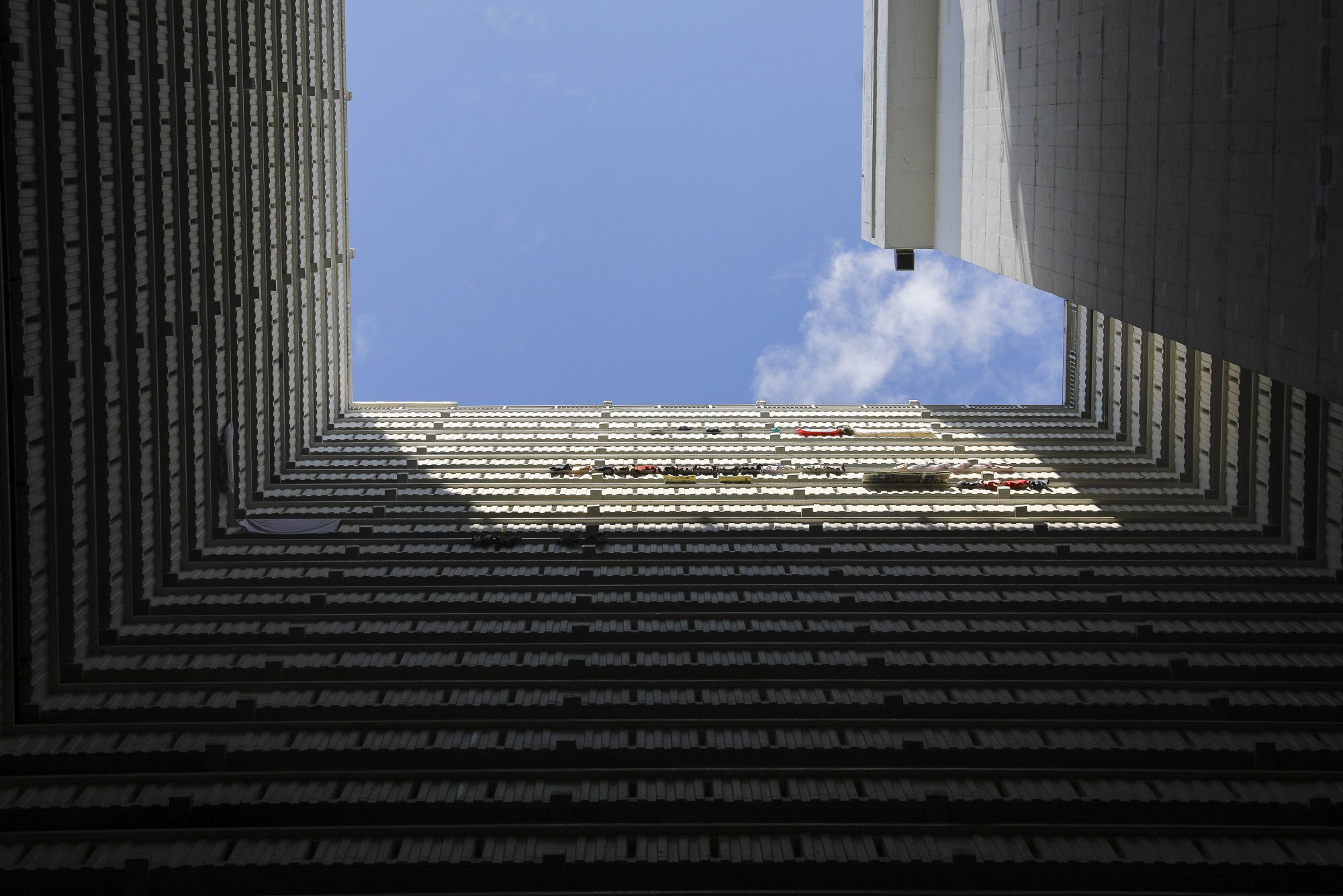
Hong Kong families face average wait of 6 years for public housing, marking 23-year high
- About 248,500 applicants were on the waiting list by the end of December last year
- Lawmaker Leung Man-kwong says recent move to use 3,000 units as Covid-19 isolation facilities may cause further delays
The average wait is double the three years pledged by the government, a target officials met from 2003 to 2014. The wait has grown longer in recent years, hitting 4.6 years in 2017 and 5.7 years in 2020. It is the longest reported wait time since 1999.
According to the latest data provided by the Housing Authority, the average wait for general applicants was six years by the end of December last year, compared with 5.9 years in the previous quarter.
Although priority is given to elderly single applicants, they have had to wait for about four years, up from 3.8 years in the previous quarter.
By the end of December last year, there were about 248,500 applicants on the public housing waiting list, according to the authority.
Hong Kong authority seeks to overturn ruling on ‘unconstitutional’ housing policies
Lawmaker Leung Man-kwong, deputy chairman of the Legislative Council housing panel, warned the worst was yet to come, given much of the public housing supply would not be available until after 2026-27, according to the government’s plans.
Leung also said the recent move to make use of some 3,000 units in Queen’s Hill Estate and Lai King Estate as isolation facilities for Covid-19 cases could further delay the allocation of flats to residents waiting on the public housing waiting list.
Authority member Wilson Or Chong-shing, of the pro-Beijing party Democratic Alliance for Betterment and Progress of Hong Kong, blamed the increasing wait times on red-tape in making land available for public housing.
“We hope the Development Bureau can speed up identifying sites for public housing and that the procedures of going through town planning can be streamlined too,” Or said.

The Covid-19 pandemic had also slowed down the building and allocation of flats, he added.
Sze Lai-shan, deputy director of Society for Community Organisation, which serves lower-income groups, said city leader Carrie Lam Cheng Yuet-ngor had mistakenly put too much emphasis on promoting home ownership.
Lam has vowed to boost property ownership among low-income families, shifting the priority from providing more public rental flats to building more subsidised flats for sale.
In her 2017 election platform, Lam said her housing policy “focuses on home ownership to enable citizens to live happily in Hong Kong and call it their home”.
Last year, she announced plans to allow those on the waiting list for more than a year to buy government subsidised homes originally targeted at existing tenants renting government flats.
“The grassroots people are very much puzzled by Lam’s plans. If they can afford to buy a flat, they would not have needed to queue for a low rental unit,” Sze said.
Hong Kong’s nano flat supply to peak this year as curbs are put in place
She urged the government to relax the eligibility to allow all those in the queue for public units to get subsidies.
Ryan Ip Man-ki, head of land and housing research at the private policy think tank Our Hong Kong Foundation, said there was a need for the government to speed up housing production. He estimated that the waiting time could be as long as 6.4 years by 2024.
Housing Authority member Anthony Chiu Kwok-wai, who also serves as the executive director of the Federation of Public Housing Estates, said the annual supply of public units would only be about 10,000-plus in the next few years, citing official projections. He urged the government to streamline land development procedures to boost supply.
At present, there is a government scheme to offer subsidies to those in the queue for at least three years, depending on the size of the household. A two-member household can get about HK$2,250, while families of six or more can get about HK$3,900 each.

